NABH to Welcome SAMHSA Administrator Miriam Delphin-Rittmon, Ph.D. at 2021 Annual Meeting
Assistant Secretary for Mental Health and Substance Use Miriam Delphin, Rittmon, Ph.D. will address attendees at the 2021 NABH Annual Meeting on Thursday, Oct. 7 at 1:30 p.m.
Dr. Miriam Delphin-Rittmon serves as administrator of the Substance Abuse and Mental Health Services Administration (SAMHSA). She previously served for six years as commissioner of the Connecticut Department of Mental Health and Addiction Services.
Prior to her appointment at SAMHSA, Dr. Delphin-Rittmon was an adjunct associate professor at Yale University, where she served on faculty for 20 years. At Yale, Dr. Delphin-Rittmon served as the director of Cultural Competence and Research Consultation with the Yale University Program for Recovery and Community Health.
In May 2014, Dr. Delphin-Rittmon completed a two-year White House appointment working as a senior advisor to the administrator at SAMHSA. In that position, she worked on a range of policy initiatives addressing behavioral health equity, workforce development, and healthcare reform.
Throughout her career in the behavioral health field, Dr. Delphin-Rittmon has extensive experience in the design, evaluation, and administration of mental health, substance use and prevention services and systems and has received several awards for advancing policy in these areas.
Please visit our Annual Meeting homepage to learn more about our speakers and register for the meeting, if you have not done so yet.
We look forward to seeing you in Washington!
Joint Commission Names HCA’s CMO Jonathan Perlin, M.D., Ph.D. as Next President
The Joint Commission’s Board of Commissioners this week named Jonathan Perlin, M.D., Ph.D. as the organization’s next president, effect March 1, 2022.
Perlin serves currently as president of clinical operations and chief medical officer of Nashville-based HCA Healthcare, where he leads a team of clinicians and data scientists in setting clinical and professional policy, implementing clinical data tools, and working to improve outcomes.
Before he joined HCA in 2006, Perlin served as the under secretary for health at the U.S. Veterans Affairs Department and later served as chair of the Veterans Affairs’ secretary’s special medical advisory group.
Perlin earned a master of science degree in health administration and a doctorate in pharmacology with his medical degree as part of the physician scientist training program at the Medical College of Virginia.
Joint Webinar to Present New Directions for Substance Use Prevention is Sept. 27
The National Institute on Drug Abuse (NIDA), the Partnership to End Addiction, and the American Psychological Association will host a webinar on Monday, Sept. 27 that will highlight how to establish a framework for an earlier and broad approach to substance use prevention.
Former NIDA Director Nora Volkow, M.D. will serve as one of the speakers during the presentation, which will also help participants learn how to implement an earlier and broader approach using today’s policy environment.
The webinar will begin at noon ET. Click here to register.
CMS to Host Webinar on Hospital Restraint and Seclusion on Sept. 28
The Centers for Medicare & Medicaid Services (CMS) will host a webinar titled “CMS Hospital Restraint and Seclusion: Navigating the Most Problematic CMS Standards and Proposed Changes” on Tuesday, Sept. 28.
Webinar instructor Laura Dixon served as director of facility patient safety and risk management and operations for COPIC, a professional medical liability insurance provider, from 2014 until 2020. Dixon will lead the webinar, which will define the CMS restraint requirement of what hospitals must document in internal logs if a patient dies within 24 hours with having two soft restraints on; describe that CMS has restraint-education requirements for staff; discuss specific items that must be documented in the medical record for the one-hour, face-to-face evaluation on patients who are violent or self-destructive; and more.
The hourlong webinar will begin at 1 p.m. ET on Sept. 28. Click here to learn more and register.
Please Nominate Members to the 2022 NABH Board of Trustees Slate of Candidates
Please help the NABH Selection Committee identify potential candidates for Board Chair-Elect and two Board seats that will become available in 2022.
The Selection Committee is particularly interested in identifying senior managers who represent the broad diversity within the NABH membership, including various levels of care, organizational structures, and size.
Please download a nomination form to share your recommendations of individuals you would like to see included in the single-slate ballot for 2022. Please attach a curriculum vitae (CV) for each individual you recommend. This will help the Selection Committee in its deliberations. You are welcome to suggest yourself.
Please return this form and candidates’ CVs to maria@nabh.org by Friday, Oct. 15, 2021.
Reminder: NABH Denial-of-Care Portal is Open to Members
NABH’s Denial-of-Care Portal is available for members to provide information about their experiences with managed care organizations that impose barriers to care through insurance-claim denials.
NABH’s Managed Care Committee worked for more than a year to develop the Denial-of-Care Portal as a way to collect specific data on insurers who deny care—often without regard for parity or the effects on patients.
This NABH member-only, survey-like tool allows users to add the name of a managed care organization, type of plan, level of care, type of care (mental health or substance use disorder), duration of approved treatment, duration of unapproved treatment, criteria used to deny a claim, and more.
The portal allows members to submit individual examples of claim denials or upload multiple entries via Excel. It also includes sections on appeals and physician participation. In time, the tool could be a valuable resource for the NABH team’s advocacy efforts.
Please e-mail Emily Wilkins, NABH’s administrative coordinator, if you have questions about the portal.
Fact of the Week
From 2014 to 2018, emergency department visits made by adults with alcohol and substance use disorders increased by 30%, while hospitalizations among patients with those disorders increased by 57%, according to a new study in the Journal of General Internal Medicine.
For questions or comments about this CEO Update, please contact Jessica Zigmond.

